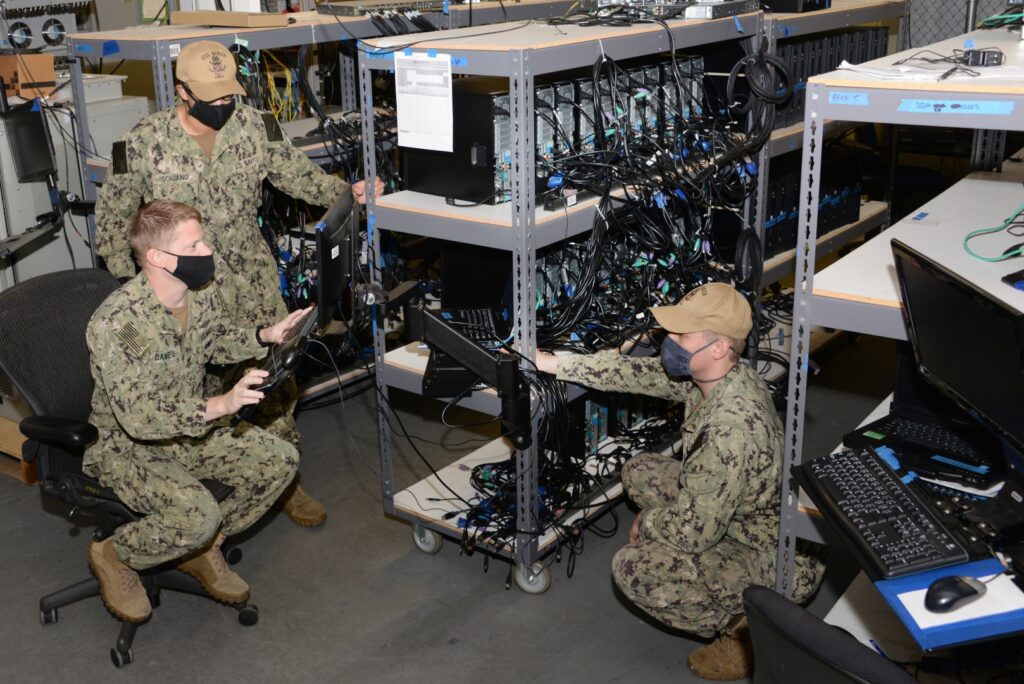The world of defense is constantly evolving, driven by technological advancements and the need to stay ahead of potential threats. In this article, we will explore some of the top military technologies to watch out for in the coming years. Unmanned Aerial Vehicles (UAVs) and drones, with their enhanced surveillance capabilities and ability to strike from a safe distance, are becoming increasingly prevalent in modern warfare. Artificial intelligence and machine learning are making significant strides in the defense sector, enabling real-time decision-making and autonomous weapon systems. Cybersecurity measures are crucial to protect critical infrastructure and military systems from sophisticated cyber threats. Hypersonic weapons, with their incredible speed and maneuverability, have the potential to revolutionize warfare. Directed energy weapons, harnessing electromagnetic radiation, offer speed, precision, and scalability. Advancements in bioengineering and biotechnology can greatly impact the future of defense, from enhancing soldiers’ abilities to developing personalized medicine solutions. As these technologies continue to evolve, collaboration and addressing ethical, legal, and security challenges will be vital.
The Future of Defense: Top Military Technologies to Watch
Introduction
The world of defense is constantly evolving, driven by technological advancements and the need to stay ahead of potential threats. As countries continue to invest heavily in their military capabilities, it becomes crucial to keep an eye on emerging technologies that are shaping the future of defense. In this article, we will explore some of the top military technologies to watch out for in the coming years.
Unmanned Aerial Vehicles (UAVs) and Drones
Unmanned Aerial Vehicles, commonly known as UAVs or drones, have become increasingly prevalent in modern warfare. These remotely piloted aircraft offer a range of advantages, such as enhanced surveillance capabilities, target acquisition, and the ability to strike from a safe distance. As technology improves, UAVs are becoming smaller, faster, and more autonomous, making them ideal for reconnaissance missions and even carrying out airstrikes. The future of defense will undoubtedly see a significant reliance on UAVs for both offensive and defensive operations.
Artificial Intelligence (AI) and Machine Learning
Artificial intelligence and machine learning have been making significant strides in various industries, and the defense sector is no exception. AI-powered systems can analyze massive amounts of data, identify patterns, and predict potential threats with unmatched accuracy. By harnessing the power of AI, militaries can make informed decisions in real-time, improve cybersecurity measures, and optimize logistics. Moreover, AI can be integrated into autonomous weapon systems, enhancing their capabilities and reducing the need for human intervention on the battlefield.
Cybersecurity
With increasing reliance on technology, cyberspace has become a new battleground. As a result, robust cybersecurity measures are crucial to protect critical infrastructure, sensitive information, and military systems. The future of defense will see significant advancements in cybersecurity technologies to counter sophisticated cyber threats. From advanced encryption techniques to intrusion detection systems and artificial intelligence-driven security algorithms, the defense sector will continue investing in cutting-edge cybersecurity solutions to ensure the integrity of its operations.
Hypersonic Weapons
Hypersonic weapons are capable of traveling at speeds exceeding Mach 5, making them extremely difficult to intercept. These weapons have the potential to revolutionize warfare, providing unparalleled maneuverability and range. With hypersonic missiles, militaries will be able to strike targets at incredible speeds, rendering traditional defense systems obsolete. As countries like the United States, Russia, and China race to develop hypersonic weapons, it is clear that this technology will play a major role in the future of defense.
Directed Energy Weapons
Directed energy weapons (DEWs) harness various forms of electromagnetic radiation, such as lasers or microwaves, to disable or destroy enemy targets. These weapons have the advantage of speed, precision, and scalability. DEWs are being developed for a wide range of applications, including anti-aircraft defense, missile defense, and even space-based warfare. As technology advances and the cost of deploying DEWs decreases, they are expected to become a critical component of future military operations.
Bioengineering and Biotechnology
Advancements in bioengineering and biotechnology have the potential to greatly impact the future of defense. From genetically modified soldiers with enhanced physical and cognitive abilities to the development of synthetic organisms for intelligence gathering, the possibilities are vast. Furthermore, biotechnology can play a crucial role in developing personalized medicine and rapid injury recovery solutions for soldiers on the battlefield. The integration of bioengineering and biotechnology into military operations will undoubtedly reshape the defense landscape.
Conclusion
The future of defense holds numerous exciting possibilities driven by top military technologies. From the utilization of UAVs and drones to the implementation of artificial intelligence, the defense sector is embracing technological advancements to maintain strategic superiority. Cybersecurity, hypersonic weapons, directed energy weapons, and bioengineering are all areas that will shape the future of defense significantly. As these technologies continue to evolve, it is vital for policymakers, militaries, and researchers to collaborate and address the ethical, legal, and security challenges that come with their implementation.
